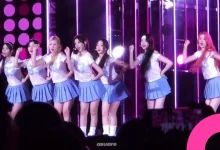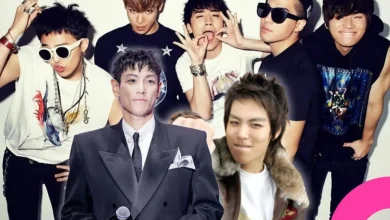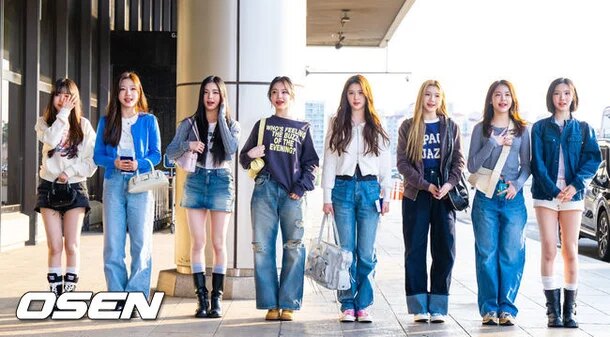
On March 29, an incident at Seoul’s Gimpo International Airport involving a man shouting profanities at K-pop girl group Hearts2Hearts went viral across online communities. This has once again brought attention to the ongoing issue of airport disruptions caused by idol-related events.

Videos circulating online show the newly debuted 8-member SM Entertainment girl group, Hearts2Hearts, arriving at the airport for their schedule in Japan. They were met by a massive crowd of fans, reporters, and security personnel. Flashing cameras and shouting fans created a chaotic scene as the members navigated through the terminal.
Amid the commotion, a man raised his voice and shouted profanities, visibly startling the members. His reaction has sparked widespread discussion online, reminiscent of last year’s controversy involving actor Byun Woo-seok’s excessive security at Incheon International Airport.
Divided Opinions on the Incident
Many netizens sympathized with the man’s frustration. Comments on YouTube and other platforms criticized the disruption caused by idol-related gatherings at airports. Some stated, “It’s satisfying to see someone call this out. Why should celebrities get special treatment?” and “Blocking airport pathways for a ‘photo time’ is ridiculous.” Others blamed photographers and dedicated fans known as ‘home masters’ (those who take and sell high-quality idol photos and videos).
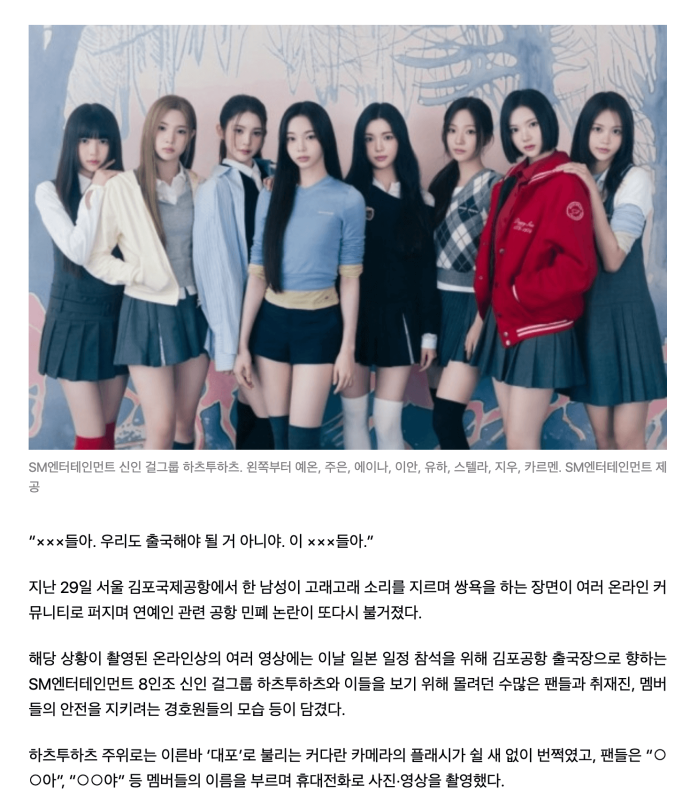
Some also pointed fingers at the idols themselves. Comments such as “Why do they keep smiling even after hearing those curses? It’s unsettling.” surfaced online. However, others defended the idols, emphasizing that the real issue lies with the crowding fans and the agencies allowing such gatherings. One X (formerly Twitter) user remarked, “Hearts2Hearts members are between 14 to 18 years old. How could they possibly control the situation? Blame the security, airlines, and agencies for leaking flight details.”
K-Pop Industry’s Role in Airport Chaos
The core of the debate centers on the long-standing industry practice of using airports for publicity. Some netizens pointed out that agencies deliberately release departure details to attract media and fans, leading to these chaotic scenes. “Agencies create these situations to generate buzz. That’s why fans don’t crowd around when idols travel privately,” one comment read.
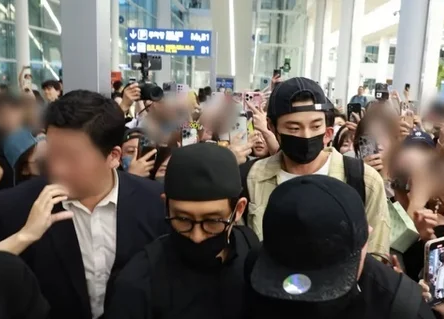
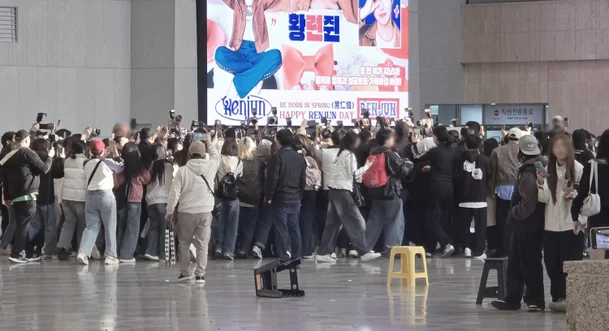
To address the issue, some suggested implementing a ‘fast-track’ system for celebrities to use separate airport entrances. However, this proposal faced backlash, with critics arguing, “Why should celebrities get special treatment over ordinary travelers?”
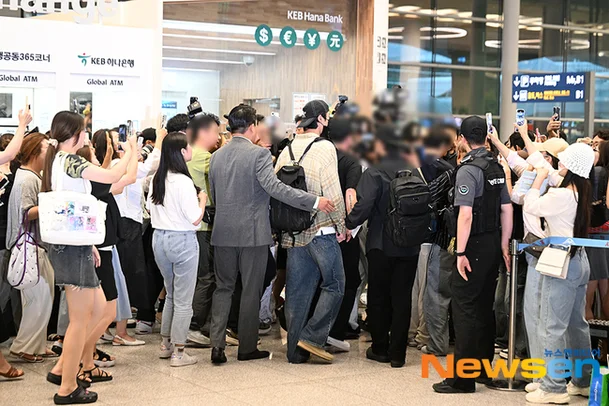
This debate is not new. Last year, Incheon International Airport proposed a paid fast-track service for high-profile figures following the Byun Woo-seok controversy but withdrew it due to public opposition.

In a statement on October 27, 2023, Incheon International Airport Corporation announced, “Considering public feedback and media reports, we will not proceed with the planned ‘exclusive entrance policy for high-profile figures’ originally set to be implemented on October 28.”
As K-pop continues to expand globally, the industry faces growing pressure to address fan crowding and ensure smoother airport experiences for both celebrities and general travelers. The latest controversy proves that finding a balance remains a challenge.
